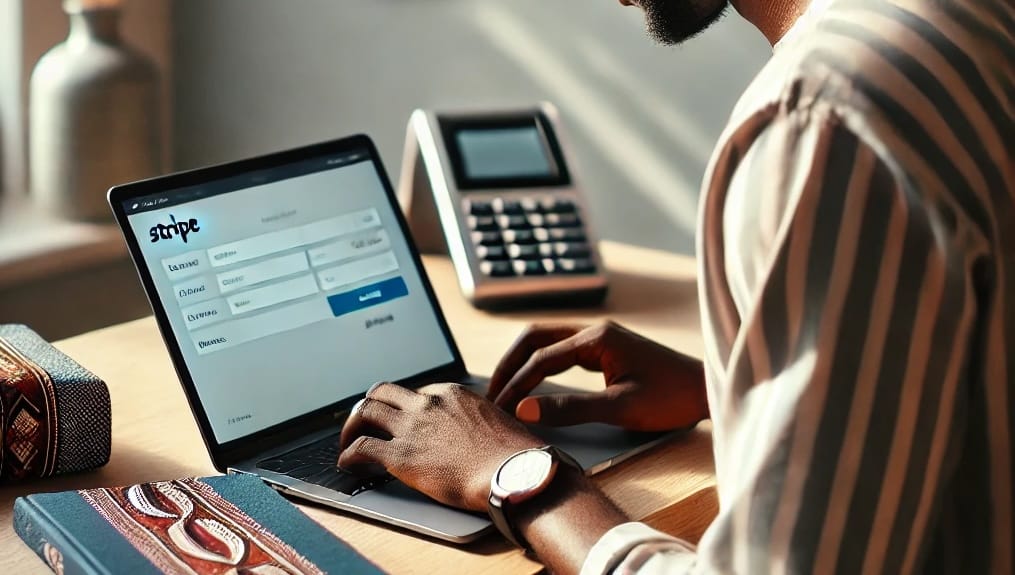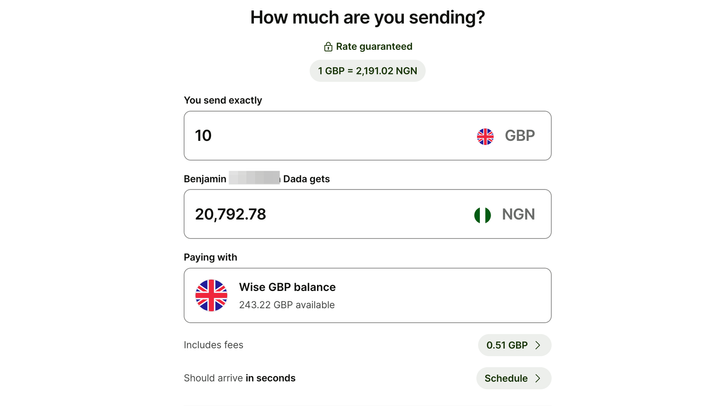Stripe to soon allow US retailers to sell directly to Nigerians
Without the merchant having to set-up a local entity in Nigeria

Stripe is set to allow its customers (merchants) to seamlessly collect payments in Nigeria using local payment methods in naira. For its merchants, Stripe will settle them in their home currency.
For instance, if a US retailer Amazoon* offers services to Nigerians, the Nigerian shopper can pay in Naira while Stripe will settle Amazoon in USD.
Previously, merchants had to incorporate in every country where they wanted to do business (accept payments) before they could get started. This limitation has capped the reach of merchants who wanted to go global and led to a lot of cart abandonment by shoppers. However, with Stripe's latest roll-out, merchants can sell directly to Nigerians without having to create a Nigerian company.
Per its beta launch, this new Stripe offering will only be available to retailers in the US with USD settlement.
Online payments is, among other things, a conversion optimisation problem — Stripe
Stripe is a financial infrastructure platform for businesses that is dual-headquartered in Dublin, Ireland and California, United States. Founded 14 years ago, its mission is to "grow the GDP of the internet" which it is now getting closer to after a total payment volume of $1 trillion, the equivalent of 1% of global GDP, last year.
The company became popular for its payment acceptance solution which allowed businesses to collect payments online by charging debit cards. Today, it has evolved to more than that offering billing and tax management services, amongst other products.
Stripe is the biggest private fintech currently valued at $70 billion, according to its latest internal valuation, known as a 409a. The company had $615 million in free cash flow in Q2, according to The Information.
“Online payments is, among other things, a conversion optimisation problem,” the company reiterated in its 2023 annual letter.
Baymard Institute which has tracked the global average of cart abandonment rate for 14 years says 70% of carts are abandoned at checkout. Thus, by shrinking the abandonment rate, merchants can grow their revenue. One such reason for abandonment is the currency mismatch between the merchant’s presentment currency, which is often based on their home country, and the shopper’s.
Stripe believes that by presenting prices to shoppers in local currency, merchants can improve their conversion.
Hence, it works to enable region-specific payment options. It could this by either acquiring local processors or going directly into those markets to localise its payment processing solution. In 2020, Stripe opted to acquire Paystack, a leading local processor.
More recently, the American multinational has turned its sights on becoming the merchant of record for their merchants. After a fantastic Q2 result, a fast-growing MoR lemon squeezy announced its acquisition by Stripe. On X, Stripe CEO Patrick Collision said, "...We're going to scale merchant of record selling in a big way."
Stripe going live with Nigeria (and South Korea) local payments
Nigeria is one of the two markets where Stripe has begun to allow merchants to accept local payment methods without having to set up a local entity.
The other is South Korea, not to be confused with North Korea, which is prohibited by Stripe due to its high-risk designation.
As a fun thought exercise, why Nigeria and South Korea? Both markets appear to have little in common. For instance, South Korea has one-fourth of Nigeria’s 200 million population but 3.5x of its $470 billion GDP.
However, in both markets, Stripe already has one piece of the two-sided puzzle. In Nigeria, it has a payment processor and in South Korea, it already supports VAT collection (a major function of the MoR). So, to go live with a full suite for its merchants, Stripe needs to find a Merchant of Record in Nigeria to complement Paystack and then it needs to acquire the payment processing capabilities in South Korea.
Legally, setting up a Merchant of Record is easy because "a merchant of record is a merchant. So, it doesn't require a licence" says Mallick Bolakale, Founder and CEO of startbutton, a Merchant of Record for global businesses in Africa. Thus, the Merchant of Record that Stripe uses in Nigeria is Global Stack Services Ltd., a company registered in July (the same month as lemon squeezy's acquisition announcement) located on the same street as Paystack Nigeria.
At the moment, it's unclear what Stripe's corporate strategy would be—whether to make lemon squeezy the parent co of its merchant of record entities across the world. Or to let its local subsidiaries (in this case, Paystack) figure out the regulatory requirement of how to offer a merchant of record service. Regardless, lemon squeezy's experience in the MoR space would be useful in scaling such offerings globally.
The impact of Stripe's play in Nigeria
Opeyemi Awoyemi, a Nigerian entrepreneur and investor says, "This is a masterstroke that is enabled by the unique Stripe/Paystack partnership and a move which might have happened long ago after the acquisition if not for regulatory approvals.
Since the merchant is settled in dollars, this also solves dollar payment challenges for Nigerian customers who want to pay internationally and hopefully, we will see more global businesses accepting payment flows like this."
He adds, "Stripe enabling this also opens up more interest in the space which had been occupied by players like OnAfriq, Cellulant and we’ve seen new players like Yala, Bluebulb, Rafiki also coming up."
Awoyemi touches on an important point which is that Nigerian individuals and businesses will now be able to conveniently pay their foreign suppliers (e.g. makers of SaaS tools like Slack–one of Stripe’s customers) in their local currency (Naira). However, the rapidly devaluing Naira and the unifying FX exchange window mean that the total cost to a local business customer will still amount to nearly the same thing when you have to convert a lot of naira to meet a USD obligation. Thus, it might still be useful for Nigerian businesses to find truly local alternatives to goods made in a high-cost environment, abroad.
On the other hand, US retailers with Nigerian entities can continue to sign up on Paystack to accept local payment methods in Nigeria and other African countries where the payment processor is present. If anything, this MoR arrangement provides another source of revenue for the Stripe subsidiary because their core service, payment processing, is still leveraged throughout the journey. And they will most likely be Stripe's payment processor in Nigeria and other African markets.
"This is an interesting development given the difficulty in paying for USD based services in Nigeria, a problem that we’re also tackling at Mercurie. If well implemented and adopted I think it's a net positive for the market as it enhances the payment experience for consumers. Obviously I’m slightly worried about what it means for startups in the Merchant of record space and how they’ll compete, but I also see potential for collaboration and partnerships that could benefit everyone," says Ayode Akinfemiwa, Founder and CEO, Mercurie.
No comment from Paystack as of press time.
Post updated, 17:30 (GMT+1), August 27, 2024 to reflect the thoughts of Ayode Akinfemiwa.






